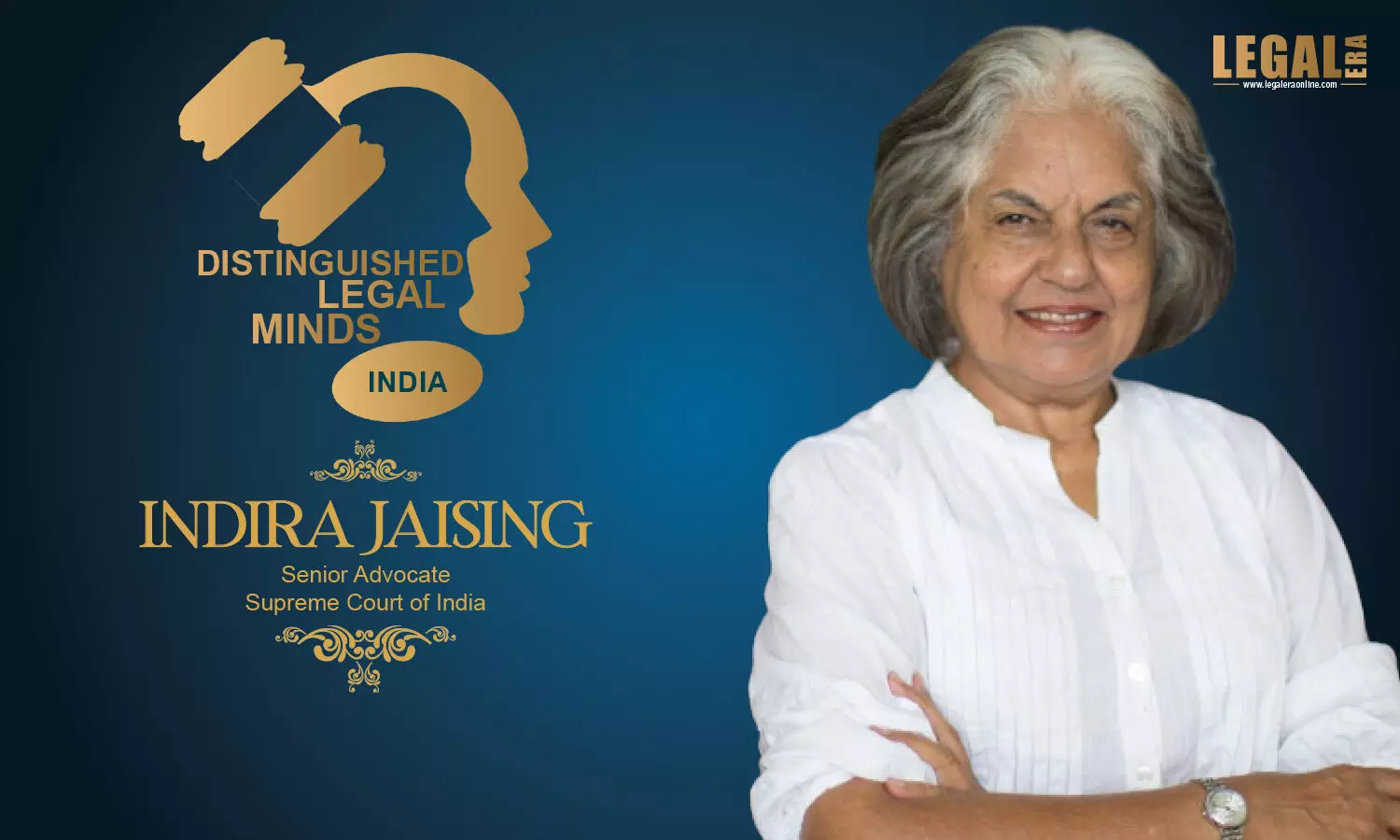
Born to a middle-class Sindhi family in 1940, Ms Jaising grew up in the tumultuous period of the partition. Her childhood memories are those of a loss of identity where she left behind her ancestral home, neighborhood and language in Pakistan. Her struggle began early, as a refugee and a woman to boot. She attended school in Mumbai and did her BA from Bangalore. She completed her LLM degree in 1964, beginning her career as a lawyer with Mulla and Mulla in Mumbai. From the very beginning, Ms Jaising was determined in her human rights’ approach and inclination towards the causes of the poor and needy. Naturally, her independent practice began in the labour courts of Mumbai, where she worked admirably for the Trade Union movement.
She became the medium through which the absolutely unheard voices in society found expression. As a woman, she was ahead of her times, struggling to rise against all discrimination while fighting for every other woman. She represented the air hostesses of Air India in their battle for equality at the workplace, help create a more impartial workspace. She also represented several women judges who had been sexually harassed in their quest for justice. Her progressive assertions in iconic cases like Mary Roy versus the State of Kerala empowered Syrian Christian women in Kerala with equal inheritance rights.
Known for her powerful comprehension and intense elucidation of the Indian Constitution, Ms Jaising’s landmark contribution in cases like Olga Tellis versus the Bombay Municipal Corporation and Githa Hariharan and another versus Reserve Bank of India and another helped establish strong constitutional and fundamental rights jurisprudence. The Olga Tellis judgment established the right of pavement dwellers not to be evicted without a hearing. The Githa Hariharan case was a breakthrough in the struggle for women’s right to guardianship of their children. The Rupan Deol Bajaj case was one of the earliest cases on sexual harassment, in which she successfully argued for Rupan Deol Bajaj against the Late KPS Gill, former DG Police. In 1981, Ms Jaising became one of the founding members of the Lawyers.’
Collective, envisaged as an instrument of change and legal empowerment for Indian society, the association worked relentlessly for the underprivileged and the disenfranchised, especially the LGBTQ (lesbian, gay, bisexual, transgender and queer) community, women, sex workers and several other social groups from every intersection of Indian society. The Lawyers’ Collective successfully represented the Naz Foundation in decriminalizing homosexual and all sexual acts between consenting adults in private. This successful challenge to Section 377 of the Indian Penal Code ended centuries of criminalizing and stigmatization of the LGBTQ community in India. Other remarkable work of the Lawyers’ Collective includes its involvement in the case against Novartis by which the rights of the poor to access affordable medicines were protected. The work of the Lawyers’ Collective on the right to health and on HIV AIDS received global acclaim.
Awarded a Padma Shri in 2005 for contribution to public like, Drafted the Protection of women from Domestic Violence Act 2005 in a collaborative manner, Rated a world leader by Forbes, member CEDAW, first woman to be designated senior advocate Bombay and finally first woman to be additional Solicitor General of India 2009 to 2014.
Indira Jaising is one of the most prominent Indian lawyers, advocating human rights. She is particularly known for her active involvement in the movement for women's rights. Famed for her strong personality and advanced thinking, she remains an institution unto herself. Her story, like her work, has fascinated and inspired generations of lawyers after her.


